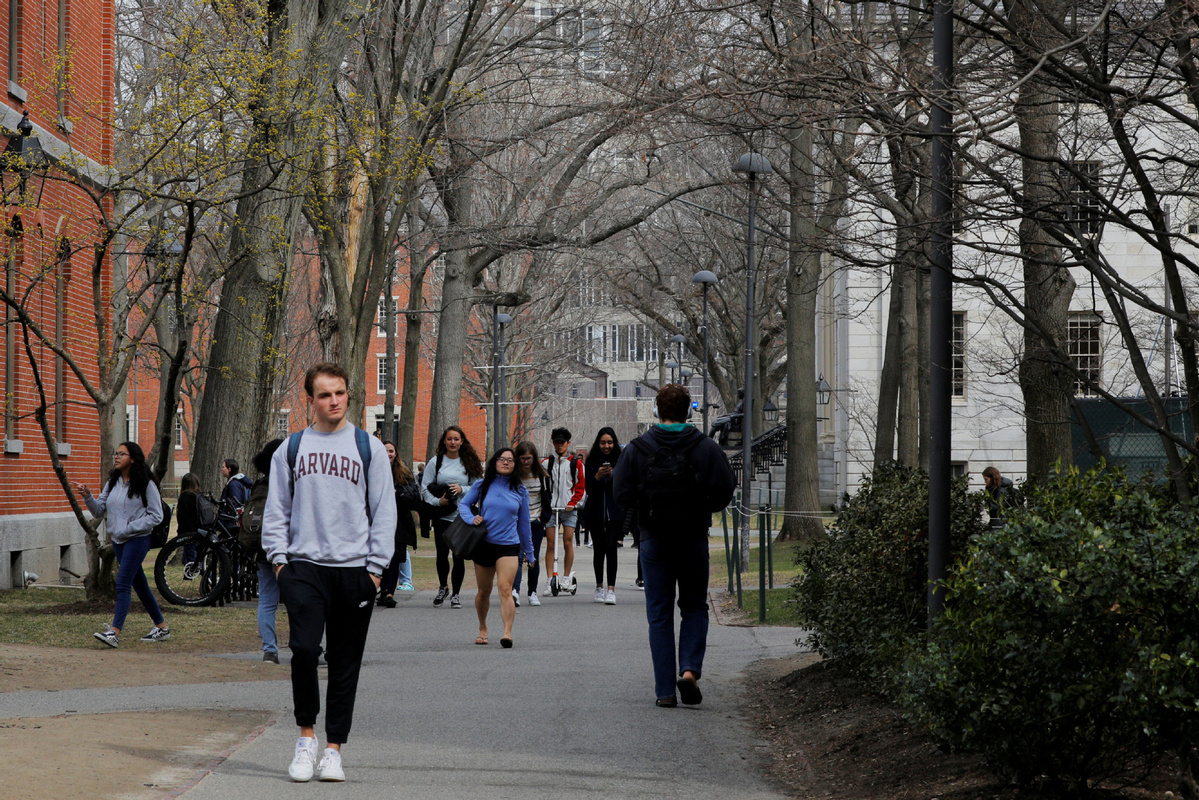Appeals court backs Harvard in race-bias case


A US appellate court on Thursday ruled in favor of Harvard University in an affirmative action case brought by a group representing Asian Americans.
The First Circuit Court of Appeals upheld a lower court's ruling that Harvard's "limited use of race in its admissions process in order to achieve diversity is consistent with the requirements of Supreme Court precedent".
The plaintiff, a group called Students for Fair Admissions (SFFA), sued Harvard in 2014, alleging the school intentionally discriminated against Asian American applicants by holding them to a higher standard in undergraduate admissions.
The group focused its argument on a "personal" score in addition to academic and extracurricular ratings. They said the rating process allowed admissions officials to disadvantage Asian Americans by enhancing the prospects of black and Hispanic applicants.
The appellate court judges dismissed SFFA's claim, saying it wasn't supported by statistical evidence.
"The nature of Harvard's admissions process, as the district court recognized, offset any risk of bias ... An applicant must secure a majority of votes at a full-body admissions committee meeting with forty admissions officers to be admitted to Harvard, which mitigates the risk that any individual officer's bias or stereotyping would affect Harvard's admissions process," wrote the judges in a 104-page opinion.
They also said that "there is no requirement that universities use entirely objective criteria when considering race to admit applicants".
SFFA had argued that Harvard used quotas for Asian American applicants, but the appellate court said that variances in admission rates for Asian American, black and Hispanic applicants disproves such an allegation.
Harvard President Lawrence Bacow praised the court's decision. "The consideration of race, alongside many other factors, helps us achieve our goal of creating a student body that enriches the education of every student," he said.
In February, the Justice Department filed an amicus brief in support of the SFFA, saying that "Harvard's expansive use of race in its admissions process violates federal civil-rights law and Supreme Court precedent".
The American Civil Liberties Union praised Thursday's decision as "a win for racial equity". "Harvard's right to consider all aspects of a student's background for admission — including race — is not only constitutional, it's critical to becoming a more inclusive society," said the organization.
"Harvard's race-conscious admissions program lives for now" and "we're probably not done with this case", said Nancy Leong, a law professor at the University of Denver.
Edward Blum, a conservative legal activist and president of SFFA, said the decision will be appealed and the Supreme Court asked "to end these unfair and unconstitutional race-based admissions policies at Harvard and all colleges and universities".
Blum has long opposed racial policies that have primarily benefited people of black and Hispanic descent. His group has been behind several lawsuits seeking to end the use of race in college admissions. He lost a Supreme Court case against the University of Texas in 2016, brought by Abigail Fisher, a white student.
According to the court document, the group's original board of directors had three self-appointed members: Blum as president, Fisher as secretary, and Richard Fisher as treasurer.
It "reminds us that SFFA, which is supposedly advocating for Asian Americans denied admission, was originally comprised of three white people — Abby Fisher (plaintiff in Fisher v. U Texas), her dad and Edward Blum (rich guy who hates all things race conscious)", said Leong.
"It's fascinating that many opponents of race-conscious admissions don't care about the role legacy status plays, which is substantial. At Harvard, the acceptance rate for legacy students is about 33 percent, compared with an overall acceptance rate of under 6 percent," she said.

































